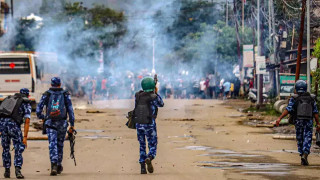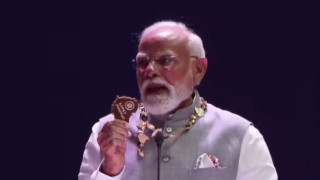
The Septa: Numerous scandals throughout history have wielded significant influence over Indian elections, shaping public sentiment and altering the political landscape. Below are some of the most notable instances that left an indelible mark on India's electoral history.
Regarded as one of India's most notorious controversies, the Bofors scandal revolved around allegations of kickbacks in the procurement of Bofors howitzers by the Indian government. The scandal implicated then-Prime Minister Rajiv Gandhi and his associates, leading to a stained reputation for the ruling Congress party and contributing to its electoral setback in subsequent polls.
Dubbed as Coalgate, this scandal unravelled irregularities in the allocation of coal blocks to private entities without competitive bidding. The colossal scam, valued in billions of dollars, shook the UPA-II government under Prime Minister Manmohan Singh, triggering widespread public outrage and tarnishing the Congress party's standing.
The Commonwealth Games hosted in Delhi in 2010 were marred by allegations of rampant corruption and financial malfeasance. The scandal encompassed inflated costs, subpar infrastructure, and kickbacks to officials, leading to political repercussions and a erosion of public trust in the ruling Congress administration.
Revealing corruption in the allocation of residences intended for war widows and veterans, the Adarsh Housing Society scandal embroiled politicians, bureaucrats, and military personnel in securing apartments through deceitful means. The ensuing public outcry demanded accountability and transparency.
The 2G spectrum scam involved the undervaluation of 2G licenses, causing substantial revenue losses for the government. Implicating politicians, bureaucrats, and corporate entities, the scandal spotlighted corruption within the telecom sector and contributed to the downfall of the UPA-II government, sparking anti-corruption movements.
During a critical trust vote in Parliament, allegations surfaced regarding bribes offered to lawmakers in exchange for their support. The scandal, known as the cash-for-votes scandal, raised ethical concerns in politics and eroded public trust in elected representatives.
The Nira Radia tapes controversy exposed conversations between corporate lobbyist Nira Radia and various stakeholders, unveiling alleged influence-peddling, policy manipulation, and collusion across sectors. The scandal triggered widespread condemnation and had significant political repercussions.
These scandals, alongside others, have wielded far-reaching impacts on Indian politics, influencing electoral outcomes, shaping public perception, and underscoring the imperative for transparent and accountable governance.













Copyright © 2025 Top Indian News
